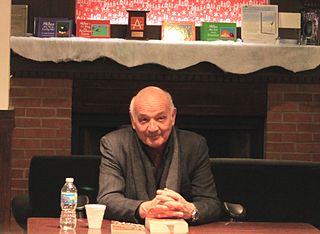A Quote by Richard P. Feynman
The drawing teacher has this problem of communicating how to draw by osmosis and not by instruction, while the physics teacher has the problem of always teaching techniques, rather than the spirit, of how to go about solving physical problems.
Related Quotes
The first and foremost duty of the high school in teaching mathematics is to emphasize methodical work in problem solving...The teacher who wishes to serve equally all his students, future users and nonusers of mathematics, should teach problem solving so that it is about one-third mathematics and two-thirds common sense.
Cities are never random. No matter how chaotic they might seem, everything about them grows out of a need to solve a problem. In fact, a city is nothing more than a solution to a problem, that in turn creates more problems that need more solutions, until towers rise, roads widen, bridges are built, and millions of people are caught up in a mad race to feed the problem-solving, problem-creating frenzy.
Sometimes I'm drawing onto a computer directly, sometimes I'm drawing on paper , so I can't really talk about drafts. It's just like having soft clay until it hardens. At least as much of the problem has to do with the decisions of what to represent, how to represent that, and how to reduce it down. The words in the balloons aren't particularly poetic necessarily, but it has the same problem as poetry, which is that one has to do great reduction. And if I tried to draw everything, you'd just have a tangled mess of a picture. The stripping down takes much longer than building up.
My notion of a failed writing workshop is when everybody comes out replicating the teacher and imitating as closely as possible the great original at the head of the table. I think that's a mistake, in obvious opposition to the ideal of teaching which permits a student to be someone other than the teacher. ... The successful teacher has to make each of the students a different product rather than the same.
The purpose of studying Buddhism is not to study Buddhism, but to study ourselves. That is why we have teaching. But the teaching is not ourselves. It is some explanation of ourselves. To study the teaching is to know yourselves. That is why we do not ever attach to the teaching, or to the teacher. The moment you meet a teacher you should leave the teacher, and you should be independent. You want a teacher so that you can be independent. So you study yourselves. You have the teacher for yourselves, not for the teacher.
Pedagogy of the Oppressed resonated with progressive educators, already committed to a 'child-centered' rather than a 'teacher-directed' approach to classroom instruction. Freire's rejection of teaching content knowledge seemed to buttress what was already the ed schools' most popular theory of learning, which argued that students should work collaboratively in constructing their own knowledge and that the teacher should be a 'guide on the side,' not a 'sage on the stage.'
Differentiated Instruction is a teaching philosophy based on the premise that teachers should adapt instruction to student differences. Rather than marching students through the curriculum lockstep, teachers should modify their instruction to meet students' varying readiness levels, learning preferences, and interests. Therefore, the teacher proactively plans a variety of ways to 'get it' and express learning.
If I were a physics teacher or a science teacher, it'd be on my mind all the time as how the hell we really got this way. It's a perfectly natural human thought and, okay, if you go into the science class you can't think this. Well, alright, as soon as you leave you can start thinking about it again without giving aid and comfort to the lunatic fringe of the Christian religion.
Teaching a practice can also be a hindrance if it becomes one's identity. To be a spiritual teacher is a temporary function. I'm a spiritual teacher when somebody comes to me and some teaching happens, but the moment they leave I'm no longer a spiritual teacher. If I carry the identity of spiritual teacher, it will cause suffering.




































